News
-
 Health & Medicine
Health & MedicineNanopackaging biodegrades after delivering cancer drug
DNA binding creates potentially nontoxic tumor-targeting structures.
By Beth Mole -
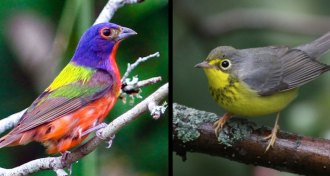 Animals
AnimalsWindows may kill up to 988 million birds a year in the United States
Single-family homes and low-rise buildings do much more damage than skyscrapers.
By Susan Milius -
 Life
LifeHow to tell good gut microbes from bad
Researchers sort out influences of specific bacteria on body fat, the immune system.
-
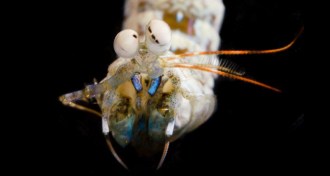 Animals
AnimalsMantis shrimp’s bizarre visual system may save brainpower
The mantis shrimp sees each color separately with one of a dozen kinds of specialized cells, a system that may help the animal quickly see colors without a lot of brainpower.
-
 Planetary Science
Planetary ScienceOld rover finds new evidence of water on Mars
Opportunity’s analysis of rocks at Endeavour crater reveals chemistry that could have supported life.
By Meghan Rosen -
 Physics
PhysicsLaser builds mirror by pushing beads together
The light technique may one day be used to build giant telescopes in space.
By Andrew Grant -
 Animals
AnimalsSloths, moths, algae may live in three-way benefit pact
Insects and green slime may justify the slow mammal’s risky descent from trees.
By Susan Milius -
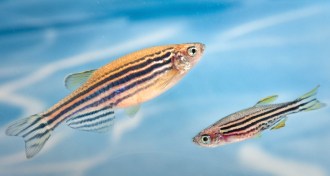 Life
LifePigment pas de deux puts stripes on zebrafish
Interactions between color-producing cells generate patterns on fish fins.
-
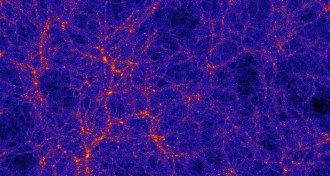 Cosmology
CosmologyFilament of cosmic web set aglow
Astronomers say they have glimpsed a brightly lit strand of the cosmic web, the universe’s underlying structure
-
 Neuroscience
NeuroscienceThinking hard weighs heavy on the brain
A balance measures the tiny changes in force due to blood flow behind a person's thoughts.
-
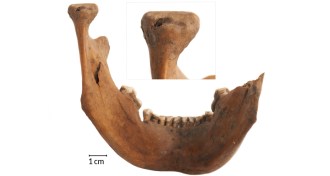 Anthropology
AnthropologySkulls from ancient London suggest ritual decapitations
The city’s Roman rulers had special watery places to keep the heads of military enemies or vanquished gladiators.
By Bruce Bower -
 Life
LifeV-flying birds pick efficient flapping pattern
Ibises time their flaps to catch a boost from a neighbor’s wing.
By Susan Milius